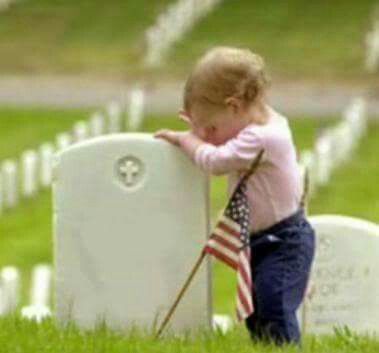10:31:23 pm 05/25/2025
Viewed: 13577
The Unseen Heroes of Memorial Day: Why We Must Remember Every Sacrifice
I want to start by sharing something with you about a conversation I had last year. My friend’s grandfather came home from Vietnam with a metal plate in his leg and nightmares he never talked about. On Memorial Day, my friend would visit his grave and then spend the rest of the day helping him clean out old military boxes—letters, dog tags, photos he’d tucked away for decades. When I asked why, he said: "He didn’t just die in a war. He lived with one."
I want to start by sharing something with you about a conversation I had last year. My friend’s grandfather came home from Vietnam with a metal plate in his leg and nightmares he never talked about. On Memorial Day, my friend would visit his grave and then spend the rest of the day helping him clean out old military boxes—letters, dog tags, photos he’d tucked away for decades. When I asked why, he said: "He didn’t just die in a war. He lived with one."
That’s what Memorial Day is really about—not just the flag-draped caskets, but the lives that were forever changed after the battle ended.
The Truth Behind the Flowers
When we lay roses on graves, we’re honoring those who didn’t come home. But what about the ones who did? The veterans who lost limbs in Afghanistan or returned with PTSD so severe they can’t sleep through a thunderstorm without flinching? The families of soldiers who now have to be their parents’ emotional anchor while grieving someone who’s still alive but gone in another way?
Memorial Day isn’t just about remembering the dead. It’s also about remembering that sacrifice doesn’t end when the war does.
The Survivors We Often Forget
Let me paint a picture for you:
A veteran who loses their arm but keeps training to run marathons, not because they can, but because it reminds them of strength.
A nurse whose husband came home from Iraq with no legs and a heart full of guilt. She spends her days helping him walk—and her nights wondering if he’ll ever stop blaming himself for what war does to the soul.
A child who grows up in a house where their dad can’t talk about his time overseas, so they never learn that courage isn’t just fighting—it’s also living with the scars.
These are the stories we don’t see on TV. But they’re real. And they matter.
Why It Hurts to Remember
I think part of why Memorial Day feels heavy is because it forces us to confront a truth we’d rather avoid: heroism is messy, and sacrifice has side effects. The people who protect our freedom often pay in ways that don’t show up on headlines—PTSD diagnoses, missing limbs, marriages strained under the weight of unspoken trauma. And their families? They’re the ones cleaning blood off bathroom floors from a veteran’s self-harm or learning to say "I love you" without expecting it to be returned.
Memorial Day isn’t just about honoring the past—it’s also a call to ask: What are we doing today for those still fighting
battles in silence?
How We Can Make This Day Matter
Here’s what I’ve learned from friends and survivors’ families over the years—this day doesn’t have to be perfect or grand. Sometimes, it just needs to be present.
Visit a Vet at Their Doorstep (Not Just a Grave)
A friend of mine started taking her kids to visit local veterans in nursing homes on Memorial Day—not for ceremonies, but to hand out handwritten letters and ask:
"What do you need? A friend who listens? Someone to help with something?" The joy on their faces isn’t about the cards.
It’s about being seen.
Support PTSD Research and Rehabilitation Centers
I’ve donated to organizations like Wounded Warrior Project, but my favorite thing is volunteering at a VA hospital garden. You don’t need to be a doctor; just showing up for someone who’s been told they’re "incurable" can change their day.
Talk About the Real Struggles
My dad always said, "If you want to honor me, don’t let my war define me." So when I talk about Memorial Day with veterans’ families, we focus on their entire lives, not just their service. Their dreams. Their fears. Their love for their kids.
An Older vet I know used to say that the greatest act of remembrance isn’t standing at attention during a flag ceremony—it’s living in a way that makes the sacrifices matter. The soldiers who died didn’t give their lives so we could have fireworks or sales. They gave it so future generations could live without fear, with dignity, and with hope.
But here’s what I’ve realized: Hope isn’t just something we feel. It’s something we do. For every veteran who can’t sleep at night, for every family still picking up the pieces, for every service member coming home in a body that doesn’t quite fit… Memorial Day is our chance to say, "I see you. I care. And I won’t let this be forgotten."
Your Role
You don’t have to be a hero. Just be human. Ask questions. Listen more than you speak. Volunteer if you can. Or simply remember that the freedom we enjoy today is built on stories of pain, resilience, and love.
Because when we honor all the sacrifices—visible and invisible—we don’t just mourn those who died. We give meaning to their lives. And to ours.
No video exists.





Comments